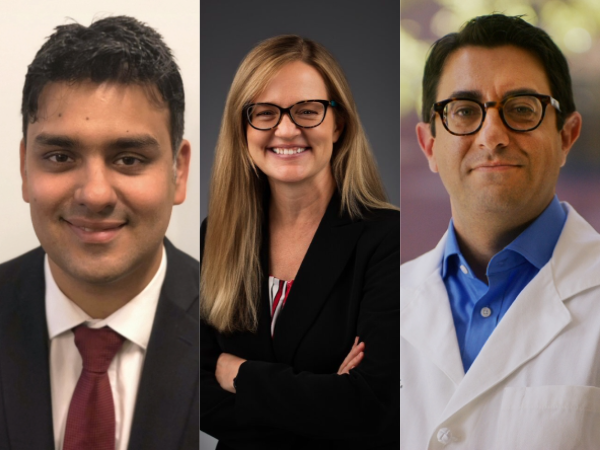 The UAB Department of Psychiatry and Behavioral Neurobiology opened its Transcranial Magnetic Stimulation (TMS) Clinic in August 2025, a significant step forward in expanding access to cutting-edge treatment for depression. Learn more about TMS therapy.
The UAB Department of Psychiatry and Behavioral Neurobiology opened its Transcranial Magnetic Stimulation (TMS) Clinic in August 2025, a significant step forward in expanding access to cutting-edge treatment for depression. Learn more about TMS therapy.
The clinic has officially opened its doors to patients seeking non-invasive, medication-free options for managing treatment-resistant depression (TRD). Located in the UAB Center for Psychiatric Medicine, the clinic is designed to provide a welcoming, therapeutic environment for individuals who have not responded to traditional antidepressant therapies.
“The addition of TMS to the treatment capabilities of our departmental clinics is an important step to ensure patients suffering from treatment-resistant depression and other disorders have access to all the available, evidence-based treatments,” said Matthew Macaluso, D.O., professor, Bee McWane Reid Endowed Chair in Mood Disorders, and Vice Chair for Clinical Affairs in the Department of Psychiatry and Behavioral Neurobiology. “Our goal is always to practice evidence-based medicine and bring treatments supported by high degrees of evidence to the people of Alabama.”
TMS is an FDA-approved treatment that uses magnetic fields to stimulate nerve cells in the brain, particularly targeting areas involved in mood regulation. It has shown promising results in reducing symptoms of depression, especially in patients who have not found relief through medication or psychotherapy.
Unlike electroconvulsive therapy, TMS does not require anesthesia and is associated with minimal side effects. Patients remain awake and alert during sessions, which typically last about 20 minutes and are administered five days a week over several weeks.
“I believe patients may prefer having this type of treatment available as it is evidenced-based and non-invasive,” said Kara Kilpatrick, M.D., assistant professor in the Department of Psychiatry and Behavioral Neurobiology and primary treating psychiatrist in the TMS Clinic. “We’ve seen significant improvements in treatment resistant depression using TMS and at the end of the day, our goal is to provide our patients with as many treatment options as possible so they may find hope and healing.”
In addition to treating TRD, TMS is also a safe, non-invasive treatment for obsessive-compulsive disorder (OCD) and can be safely administered as an outpatient procedure with minimal risks and side effects. TMS is significant as a substantial number of patients do not respond or poorly tolerate the first-line treatments for major depressive disorder and OCD. Thus far, studies indicate that the response rates to TMS are high, and the positive effects of treatment are sustained up to one year after the acute treatment series.
“Our state-of-the-art system is designed to provide precision-grade treatment to our patients in order to maximize treatment effects while trying to minimize side effects,” said Abishek Wadhwa, M.D., assistant professor in the Department of Psychiatry and Behavioral Neurobiology, founding director of TMS service and primary treating psychiatrist in the TMS clinic.
In addition to its clinical component, the TMS Clinic will also contribute to the departments didactic and research-driven missions.
“The clinic will promote education and training and help our trainees to get certified in this procedure,” Wadhwa said. “This service is also designed to incorporate research capabilities with the aim of finding better treatment protocols, newer indications, novel stimulation areas, and to better understand the neurobiology of psychiatric illnesses.”
The new clinic, intended for adults and adolescents with TRD and OCD, represents a major milestone in the commitment of the Department of Psychiatry and Behavioral Neurobiology to advancing mental health care in the region.